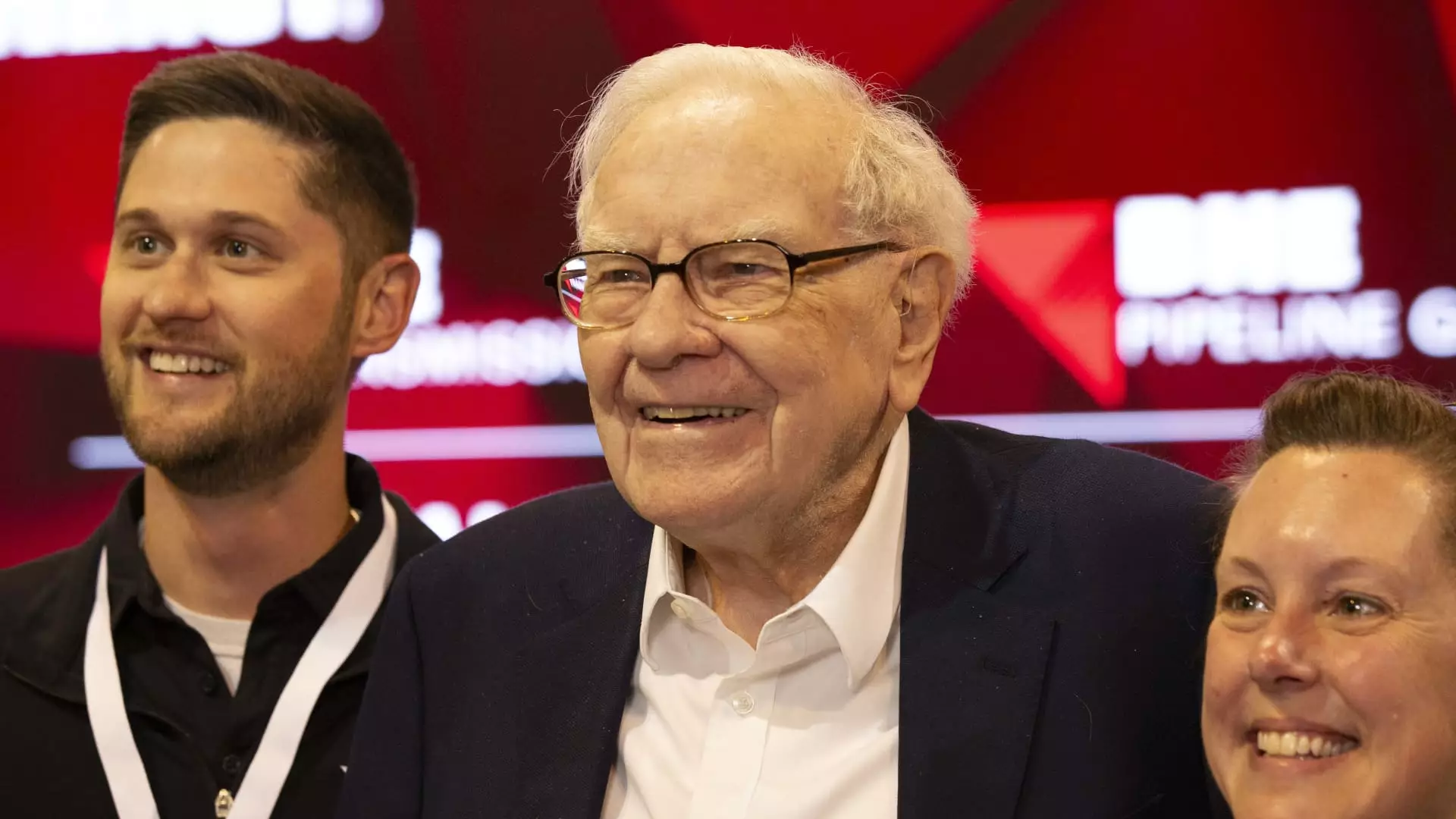Warren Buffett, the renowned investor and chairman of Berkshire Hathaway, is once again in the spotlight as he prepares his annual address to shareholders amid a whirlwind of economic shifts and environmental catastrophes. With global ramifications stemming from renewed trade wars, catastrophic wildfires, and a notable sell-off of stocks within Berkshire, investors are poised with heightened anticipation. Buffett’s forthcoming letter, set to unveil alongside the fourth-quarter earnings report, promises not only to provide insights into his strategic thinking but also to reveal how these interconnected events impact the operations of his colossal conglomerate.
While Berkshire Hathaway may not operate extensively within the California insurance sector, the ramifications of the recent wildfires have certainly piqued investor interest. Analysts have estimated that these fires could lead to unprecedented insured losses, potentially exceeding $40 billion. This figure comes with the sobering understanding that Berkshire’s extensive reinsurance operations might face considerable exposure as they absorb some of these losses.
Notably, insurance analyst James Shanahan highlighted the possibility of significant fiscal impacts due to the wildfires, emphasizing the necessity for Berkshire’s transparency regarding these losses in their next earnings report. Furthermore, UBS analyst Brian Meredith projected that Berkshire’s reinsurance segment could incur losses around $1 billion, indicating that while the company is not directly at the epicenter of California’s insurance market, the downstream effects of such disasters still bear weight.
Additionally, another Berkshire entity, Geico, which has a substantial presence in California auto insurance, is likely to feel the impact through a series of claims. Analysts, however, believe that these claims will be manageable in scale, yet the cumulative effect on Berkshire’s financial health remains a crucial point of scrutiny.
Buffett’s past commentary on tariffs reveals a consistent skepticism regarding their long-term implications. During the ongoing trade dispute, with 25% tariffs placed on goods from key trading partners such as Mexico, Canada, and China, there lies a palpable concern over inflation and its potential to squeeze consumers. As a long-time advocate for free trade, Buffett’s insights into this economic landscape will be watched closely during his annual address.
Investors will be particularly keen on any revelations relating to how these tariffs are impacting Berkshire’s portfolio companies. For instance, businesses reliant on imports, such as those in the construction sector, may face rising costs due to increased tariffs on essential materials. The economic ripple effects could influence overall profitability, making Buffett’s analysis on these matters highly instrumental for stakeholders.
A significant theme in the current narrative surrounding Berkshire Hathaway is Buffett’s ongoing stock-selling spree, which raises important questions about his investment philosophy and outlook on market valuations. Having sold a substantial number of Bank of America shares, bringing his holdings below the critical 700 million share mark, analysts have begun to speculate on the implications of such a move.
For nine consecutive quarters, Berkshire has seen its stock sales outpace purchases, leading to a staggering cash reserve of over $300 billion. This trend suggests a possible assessment by Buffett that market valuations are inflated, presenting limited opportunities for new investments. Without significant acquisitions or investments in operating companies, concerns linger about the sustainability and growth of Berkshire’s long-term strategy.
Amidst these market dynamics, Buffett has also been laying the groundwork for his eventual succession, focusing on resolving pressing litigations and streamlining Berkshire’s holdings. By acquiring the remaining stake in Berkshire Hathaway Energy and solidifying control over its assets, Buffett seems to be crafting a conducive environment for his successor, Greg Abel.
The decisions made during this transitional phase showcase Buffett’s strategic foresight, ensuring that Berkshire remains robust and resilient for the future leadership. Analysts believe that this preparation is paramount to sustaining Berkshire’s legacy and operational continuity.
Warren Buffett’s upcoming letter to shareholders holds the promise of revealing not only his strategic insights regarding wildfires, tariffs, and market valuations but also his intentional steps towards ensuring a seamless transition of leadership within Berkshire Hathaway. As the company navigates these complex challenges, the importance of Buffett’s longstanding investment principles and his acutely analytical mindset become ever more pronounced. Investors and admirers alike will keenly await his reflections amidst this pivotal moment in both his storied career and the broader economic landscape.

